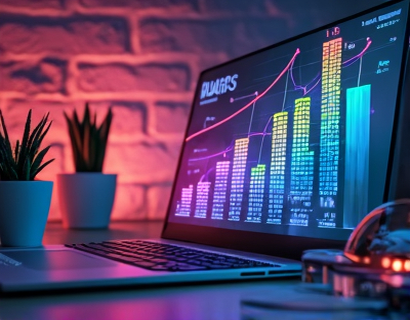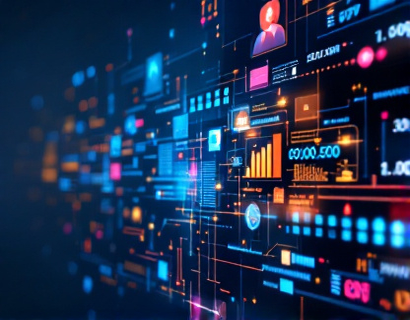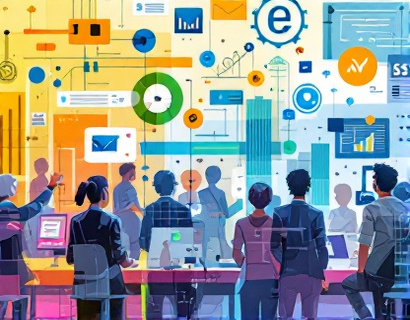Elevating the Olympic Experience with AI-Powered Insights
The Olympic Games, a global spectacle of athletic excellence and unity, captivate millions of fans worldwide. In the digital age, the way enthusiasts engage with the Olympics has evolved significantly. The integration of Artificial Intelligence (AI) into Olympic platforms offers a transformative experience, providing real-time updates, deep insights, and a vibrant community for fans to connect and celebrate the spirit of the Games. This article delves into how AI-powered tools are revolutionizing the Olympic experience, making it more interactive, informative, and engaging for enthusiasts.
Real-Time Updates: Staying Ahead of the Action
One of the most significant advantages of AI in the Olympic context is the ability to deliver real-time updates. Traditional methods of following Olympic news, such as checking websites or waiting for scheduled updates, are no longer sufficient. AI-driven platforms can process vast amounts of data from various sources, including official Olympic channels, sports networks, and social media, to provide fans with instantaneous information. This includes live scores, athlete performances, and event schedules, ensuring that users are always up-to-date with the latest happenings.
For instance, an AI-powered chat interface can integrate with multiple data feeds to offer a comprehensive view of ongoing events. Fans can receive notifications about gold medal wins, record-breaking performances, and unexpected upsets as they happen. This immediacy not only keeps fans engaged but also enhances the overall excitement of following the Olympics.
In-Depth Insights: Beyond the Surface
AI's capability to analyze complex data sets goes beyond mere updates. It can provide in-depth insights into athlete performances, team strategies, and historical context. By leveraging machine learning algorithms, these platforms can offer personalized content based on a user's preferences and viewing history. For example, a fan interested in track and field can receive detailed analyses of sprint times, lane-by-lane breakdowns, and comparisons with past Olympic performances.
Moreover, AI can highlight trends and patterns that human analysts might overlook. This could include statistical analyses of athlete health and recovery, environmental factors affecting performance, or the impact of technological advancements in sports equipment. Such insights not only enrich the fan experience but also cater to the curiosity of sports enthusiasts who seek a deeper understanding of the Games.
Community Engagement: Connecting Fans Worldwide
The Olympic spirit thrives on community and shared passion. AI-powered platforms facilitate a vibrant community where fans can connect, share, and celebrate together. Through natural language processing and chatbot technology, users can engage in meaningful conversations, ask questions, and exchange insights with fellow enthusiasts from around the globe. This global community breaks down geographical barriers, fostering a sense of unity and camaraderie among Olympic fans.
Discussion forums, live chat sessions, and social media integrations are just a few features that enhance community engagement. Fans can participate in polls, quizzes, and interactive challenges related to the Olympics, making the experience more dynamic and enjoyable. AI can also curate content based on community interests, ensuring that the discussions remain relevant and engaging.
Personalized Recommendations: Tailoring the Experience
One of the most compelling aspects of AI in the Olympic context is its ability to offer personalized recommendations. By analyzing user behavior and preferences, AI algorithms can suggest events, athletes, and content that align with individual interests. This personalization enhances the user experience by reducing information overload and providing a tailored feed of the most relevant and engaging content.
For example, a user who frequently follows women's gymnastics might receive notifications about upcoming routines, interviews with top gymnasts, and historical highlights from past Olympics. This level of customization ensures that each fan's experience is unique and tailored to their passions, keeping them engaged throughout the Games.
Enhanced Accessibility: Making the Olympics Inclusive
AI-powered platforms also contribute to making the Olympic experience more accessible. For fans with disabilities, features such as text-to-speech, sign language interpretation, and descriptive audio can be integrated to ensure that everyone can enjoy and participate in the Games. AI can also help translate content into multiple languages, breaking down language barriers and making the Olympics accessible to a global audience.
Additionally, AI can assist in creating content that is easier to consume, such as summarizing long articles into concise bullet points or generating visual summaries of complex data. This not only benefits fans with disabilities but also caters to those who prefer different formats of content consumption.
Predictive Analytics: Anticipating the Unexpected
AI's predictive capabilities extend to forecasting outcomes and trends in Olympic competitions. By analyzing historical data, current performances, and various external factors, AI can provide predictions on medal counts, potential upsets, and future trends in sports. These predictions can spark interesting discussions and debates among fans, adding an extra layer of engagement to the Olympic experience.
For instance, AI might predict which athletes are most likely to break records based on their past performances and current form. Such insights can help fans plan their viewing schedules and focus on the most exciting matches and events. Moreover, these predictions can serve as a talking point, encouraging fans to share their opinions and engage in lively discussions.
Educational Resources: Learning and Growing Together
The Olympics are not only a showcase of athletic prowess but also a platform for cultural exchange and education. AI-powered platforms can offer a wealth of educational resources, from historical overviews of the Games to in-depth analyses of sports techniques and strategies. Interactive tutorials, virtual tours of Olympic venues, and behind-the-scenes content can enrich the fan experience and deepen the appreciation for the Olympics.
For example, AI can create personalized learning paths for fans interested in specific sports, providing step-by-step guides, expert interviews, and historical context. This educational component ensures that the Olympic experience is not just about watching the Games but also about learning and growing together with the global community of enthusiasts.
Conclusion: The Future of Olympic Engagement
The integration of AI into Olympic platforms marks a significant step forward in enhancing the fan experience. Real-time updates, in-depth insights, community engagement, personalized recommendations, enhanced accessibility, predictive analytics, and educational resources collectively create a dynamic and immersive environment for Olympic enthusiasts. As technology continues to evolve, the potential for even more innovative features and interactions is vast, ensuring that the Olympic spirit remains vibrant and accessible to fans around the world.










































